Christ Church Warleigh Dickoya is an Anglican church built in Ceylon during the 18th century by the British. It was built by William Scott, the manager of the Governor’s Mansion, in 1878 and completed the construction in 1889, when the country was a British colony.
A bible printed in the 1860s was presented to the church in July 1879 by Rev. Charles Hill, the rector of Warboys Parish, and is still preserved in the church. The first British colonial Inspector General of the Ceylon Police, Sir George William Robert Campbell, who came to Ceylon in 1866, is believed to be buried in the churchyard.
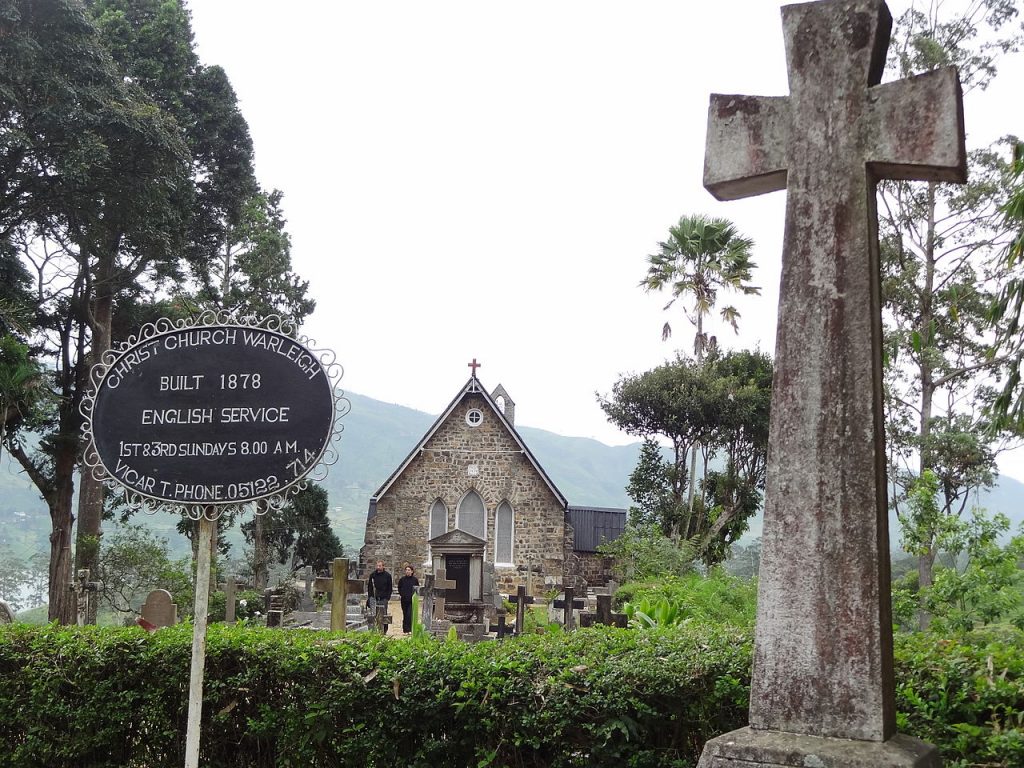
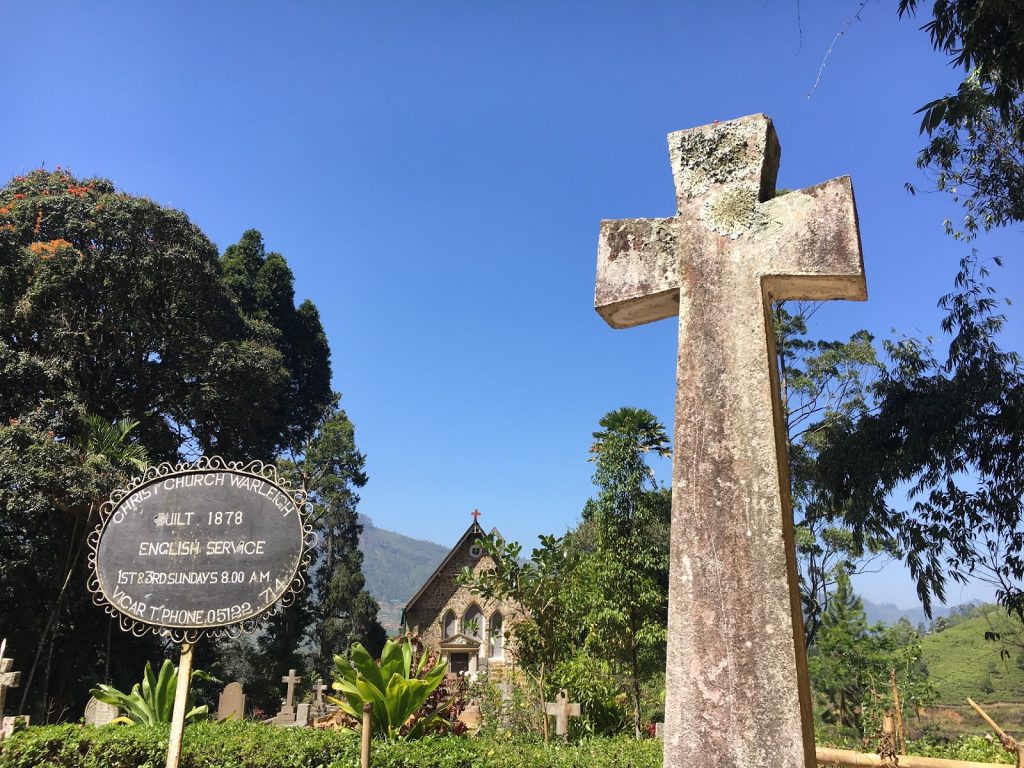
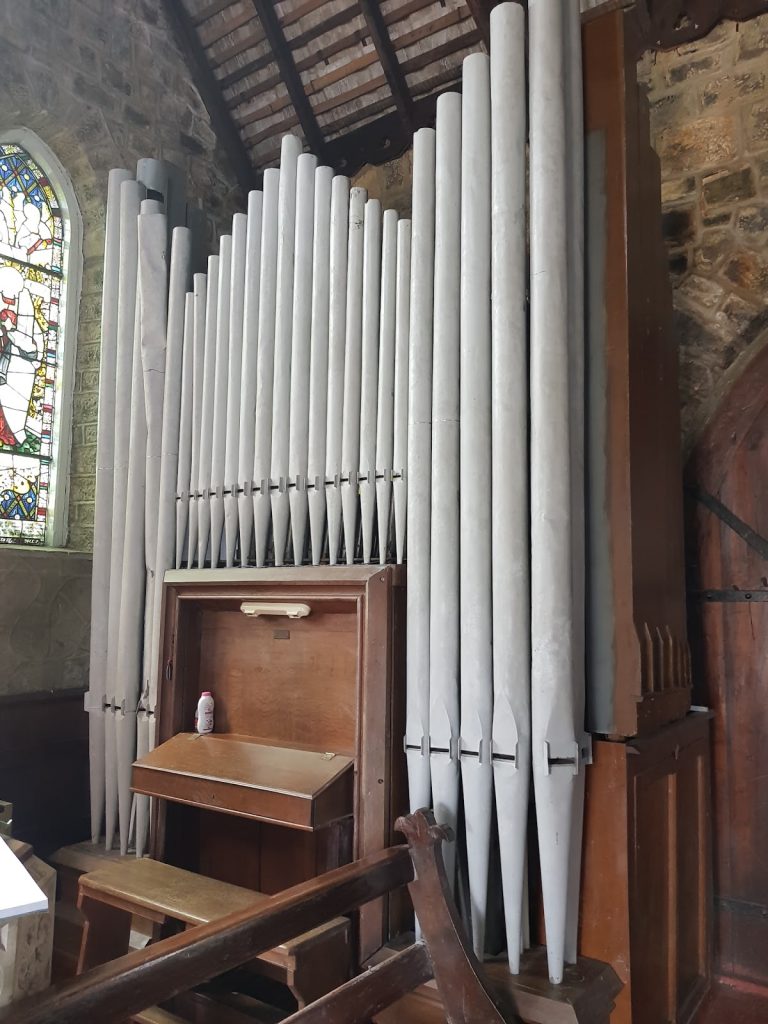

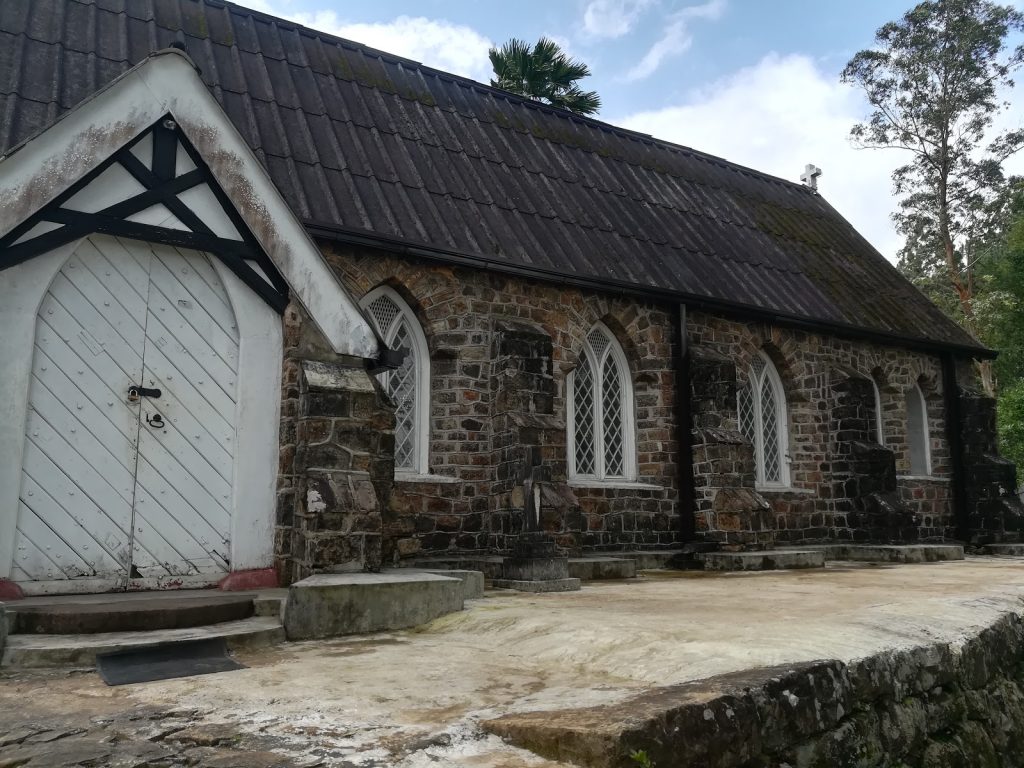

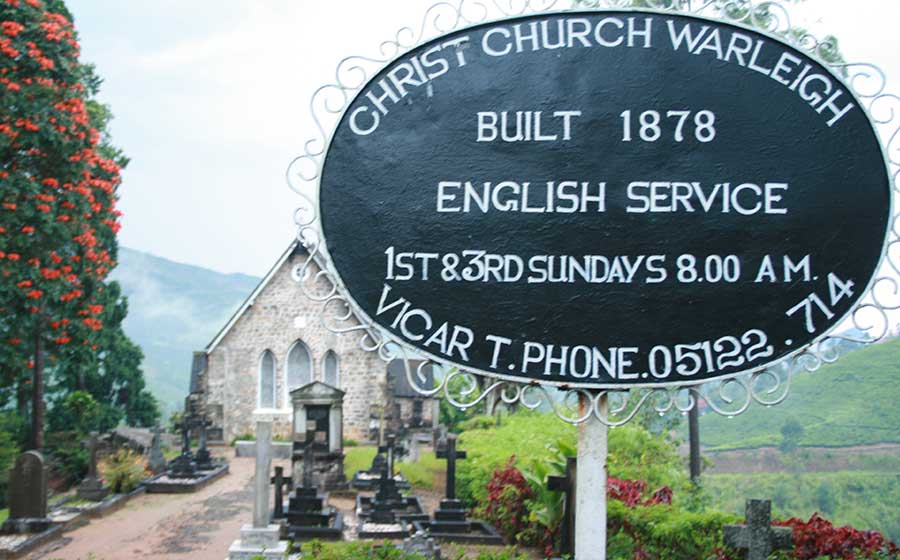
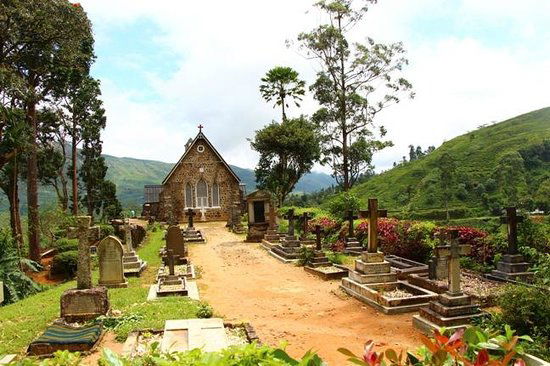
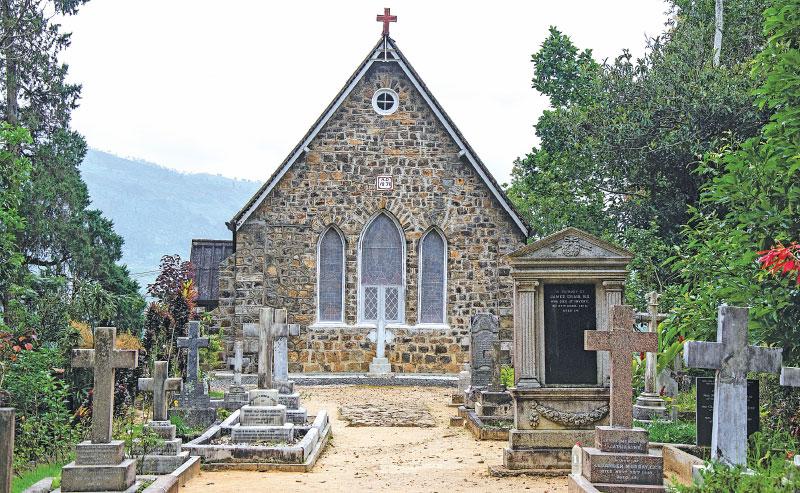
The Church Warleigh Dickoya was built in typical old British church architecture is quite quaint. The walls of the church include granite stones. The church interior has wooden furniture seats, an ancient pipe organ, an armchair, and wooden pulpit along with the 140 year old Bible.
19th century stained glass windows, which depict the paintings of Jesus Christ, were originally brought from England. A baptismal font made of porcelain is adorned with floral designs. The church floor is laid out with imported floral tiles from England.
A cemetery with tombstones of English colonial tea planters is next to the church. The tombstones extend behind the chapel, the plots they guard lined with bricks. The scene is both morbid and beautiful with the sloping green fields of tea folding into the river in the background.
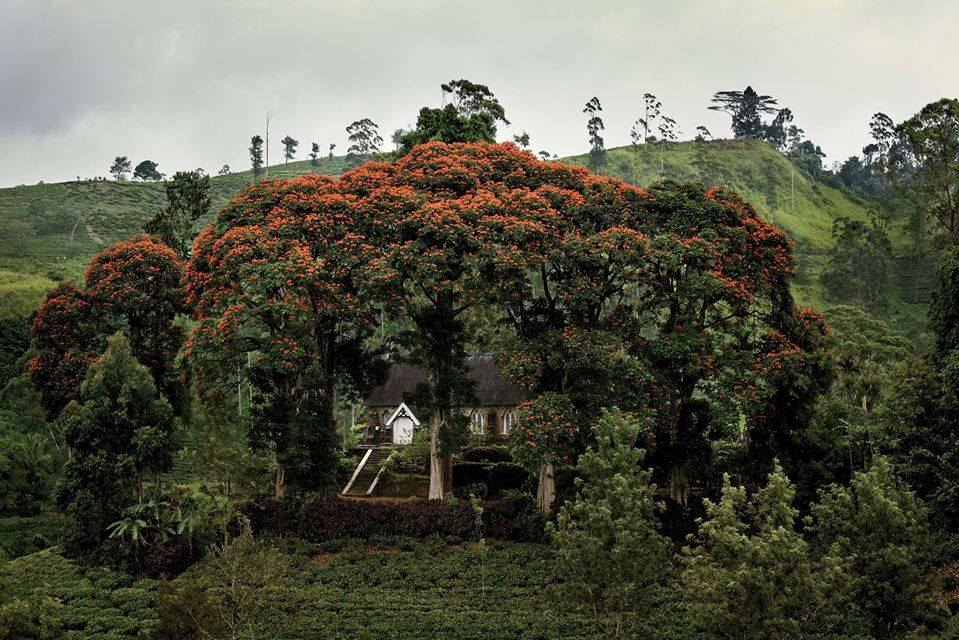
The church is now administered by the Church of Ceylon. The church is regarded as one of the most prominent and oldest Anglican churches in Sri Lanka and is a tourist destination. It is in the Central Province of Sri Lanka, in Dickoya, near the Nuwara Eliya District along the Hatton-Norwood road through the Warleigh Division. The church borders tea estates and the Castlereagh Reservoir.
Credit – Wikipedia, Afar, Governor’s Mansion






Loading…
Loading…